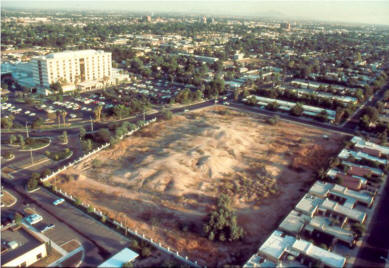[Source: Maria Polletta, Cronkite News Service, AZCapitolTimes.com] –It’s around 90 degrees outside and Mary Evans is buttoned up in a long-sleeved, high-collared white blouse that’s fastened at the neck with a black cameo. A black wool skirt, worn over bloomers, skims the top of her black boots. It looks uncomfortable, but Evans doesn’t seem to mind.
After six years of volunteer work at the Tombstone Courthouse State Historic Park, Evans says she still gets caught up every time she browses the cases of wedding dresses, children’s shoes, dolls and toys. “Everything in the courthouse is special,” Evans said.
Evans couldn’t imagine losing the iconic building when budget cuts threatened funding for 19 of the state’s 28 parks, including the courthouse, earlier this year. Neither could leaders of this former silver-mining town, which draws tourists from all over the world with attractions like the OK Corral and Boothill Graveyard.
Under an arrangement with Arizona State Parks, the city of Tombstone officially took over the courthouse April 1. A professional service agreement allows the Tombstone Chamber of Commerce to oversee park operations for at least three years, with two more two-year terms possible. Since the courthouse changed hands, park hours have been extended from five to seven days a week, and volunteers have traded in state parks uniforms for period wear, said Patricia Moreno, the park’s manager. Staff and volunteers have also been working to create “living history,” such as trial re-enactments in the courthouse’s upstairs courtroom [to read full article click here].


You must be logged in to post a comment.